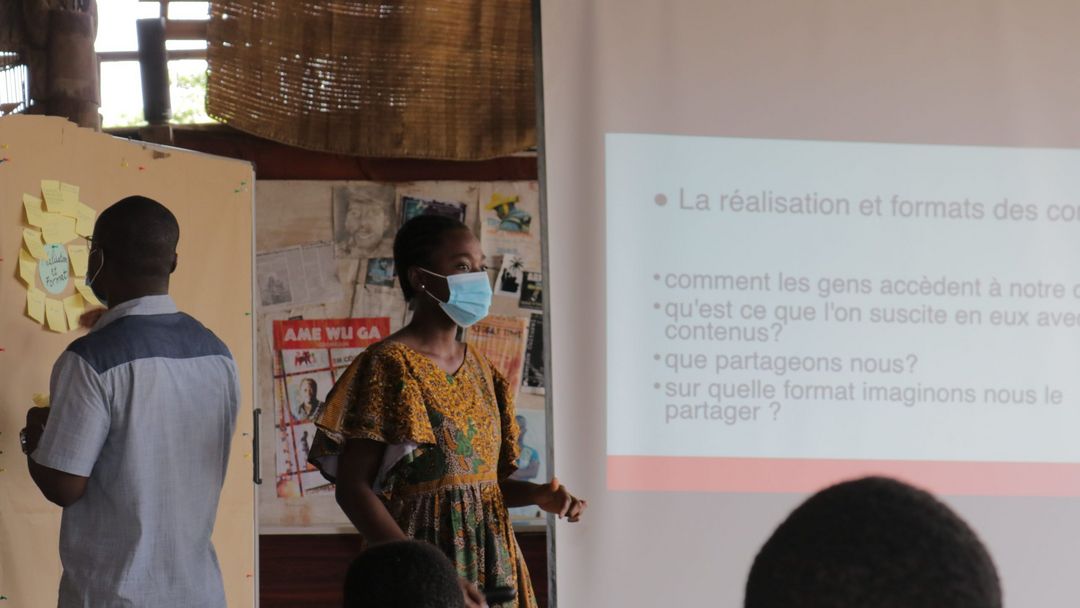The name "Miadé" means "With us" in Éwé, one of the most widely spoken languages in Togo and southern Ghana. The aim is to develop content for local DIY networks that is tailored to the needs and challenges of the communities. These are developed in co-creation workshops together with people from the community. Through the local network platform, the local population is enabled to share data, collaborate on documents, conduct interviews, exchange information or participate in further education formats, thus contributing to sustainable economic development at the local level.
Community Wireless Networks will be established by using the Raspberry Pi mini-computer and the open source platform "MAZI".
Workshop 1
The first workshop took place in June. The aim of the project consortium was to get to know the three communities Kantata, Halsa international and Africa Coworkers in order to identify their individual needs. Due to Covid-19, the workshop took place digitally. The project consortium discussed different co-creation methods in weekly video conferences. Finally, the voice elicitation method was used and the participants from the communities answered various questions about their communities via instant messaging service. In written form, as voice messages or in the form of drawings, they shared their everyday practices and interactions.
Workshop 2
The second workshop took place in July in compliance with local hygiene regulations. Based on the results of the first workshop, it became clear that the methods and objectives have to be adapted individually to each community to meet their needs. By using a collaborative online whiteboard platform, the participants determined which MAZI applications and content could be installed on the community networks to make them available there.
Workshop 3
The third workshop took place at the end of August and aimed to familiarize the communities with the hardware of the Raspberry Pi and the open source software MAZI. Another goal was to take away their fears and possible reservations about the technologies used. One of the local leads installed the MAZI platform for the communities with the elaborated applications on the Raspberry Pi and presented the results of the workshop. In addition, one or two members were selected for each community, who would be responsible for all technical details and inquiries to ensure the sustainability of the network. The unboxing method was used to ensure a general understanding of the technology. We are pleased that the communities were so motivated after the end of the workshops that they will organize further workshops with the involvement of the Local Community Networks.

